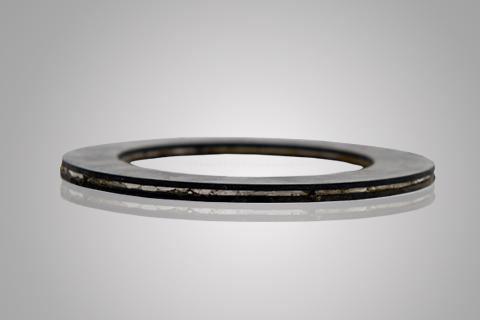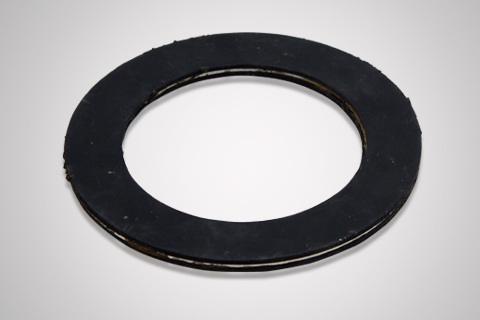Rubber Gasket
Rubber Gasket
A gasket is a mechanical seal which fills the space between two or more mating surfaces, generally to prevent leakage from or into the joined objects while under compression.
Gaskets allow "less-than-perfect" mating surfaces on machine parts where they can fill irregularities. Gaskets are commonly produced by cutting from sheet materials.
Rubber is a soft gasket material. A wide range of elastomers can be used, such as neoprene, nitrile, EPDM and natural rubber. Rubber gaskets are used in a wide range of applications such as pipe gaskets, heat exchangers, and manways.
Natural rubber (NR)
Excellent for recovery properties. Good resistance to most inorganic salts, mild acids and alkalis. Not recommended for oils and solvents, or where exposure to ozone, oxygen or sunlight is prominent.
Neoprene (chloroprene, CR)
Excellent resistance to oils, ozone and weathering. Suitable for moderate acids, alkalis, salt solutions, petroleum, solvents, oils and fuels. It is not recommended for strong acids or hydrocarbons.
Nitrile (NBR)
Improved chemical resistance and temperature capabilities over neoprene. Good resistance to hydrocarbons and oils. Not suitable for chlorinated hydrocarbons, esters, ketones and strong oxidizing agents.
-
Phone:
022-23434124/022-23112206
-
158, Nagdevi Street,
2nd Floor, Madina Manzil,
Mumbai- 400003, Maharashtra,
India
-
E-mail:
works@industrialengg.in


